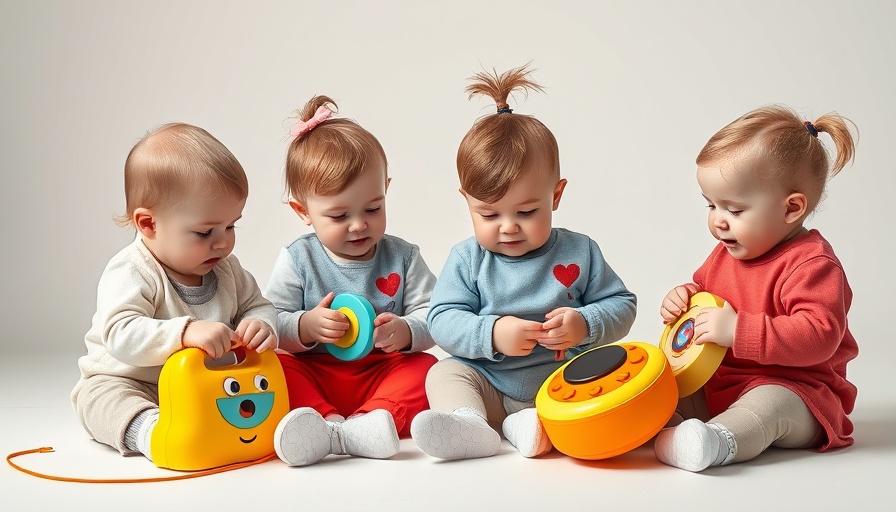
The Foundation of Social Development in Toddlers
Children aged 1-3 years are like sponges, soaking up the world around them and beginning to forge crucial social relationships. During this incredibly formative period, toddlers develop feelings, social skills, and an understanding of the world that shapes their future interactions. Parents and caregivers play an essential role in nurturing these early connections, laying down a foundation for healthy social development.
Connecting Through Play: The Gateway to Social Skills
One of the most significant ways toddlers learn to interact with others is through play. Engaging with peers in both solitary and group play invitations fosters essential skills such as sharing and cooperation. When children play together, they learn to negotiate, take turns, and express their emotions more effectively. These interactions promote empathy—a skill that becomes increasingly vital as they grow. Parents can enhance these interactions by creating opportunities for play dates or group activities that allow children to socialize with others of similar ages.
Express Yourself: Communication Milestones
As children reach the age of two, you may notice an explosion in their vocabulary and communicative abilities. Encouraging toddlers to express their feelings verbally is vital to developing social understanding. Activities like reading books together, singing songs, and naming objects in their environments not only expand their vocabulary but also foster independence and confidence in social situations. Simple conversations about their day, feelings, or interests encourage children to express themselves clearly in the future.
Understanding Emotions: The Key to Social Success
By the age of three, children begin to develop a more complex understanding of their own emotions as well as the emotions of others. Teaching toddlers to recognize and label feelings can help them navigate social situations more effectively. Role-playing games or simple stories can help them understand feelings and how to express them in healthy ways. Recognizing cues—such as a frown or a smile—encourages them to become more empathetic and responsive individuals. For instance, when they see a friend upset, they learn the importance of comforting them, which builds the groundwork for strong relationships.
Creating a Supportive Environment for Social Growth
A nurturing environment is crucial for social development. Consistent routines help children feel secure, which is essential for trying new social experiences. Parents and caregivers should model positive social interactions, illustrating how to greet people, express gratitude, and resolve conflicts peacefully. Also, emphasizing the value of friendships and encouraging connections with family members and peers will foster healthy relationships that benefit children throughout their lives. Ohio State University emphasizes that parental guidance is pivotal in helping children navigate their emotions and relationships effectively.
The Role of Community in Nurturing Social Development
Finally, community engagement plays a pivotal role in a child’s social development. Programs in libraries, daycare centers, and parks can provide opportunities for children to connect with their peers in a structured setting. Local community events, such as festivals or story hours, help children build bridges within their community, creating a sense of belonging. This belonging is vital in shaping social competence, giving children a greater sense of security as they build their social skills.
In nurturing your child's social development, remember that each child is unique, and these milestones may vary. Celebrating every social victory, no matter how small, will help your toddler flourish within their social world.
 Add Row
Add Row  Add
Add 




Write A Comment